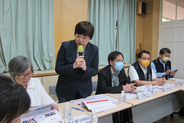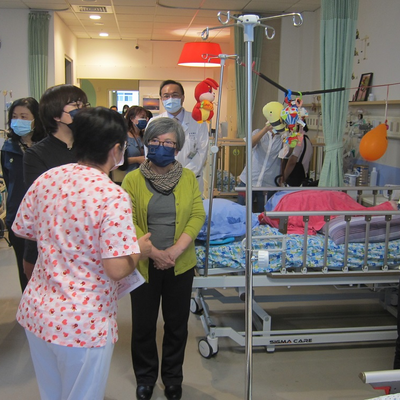Based on Ministry of Health and Welfare (MOHW) data, the number of children with developmental, physical, or mental disabilities placed outside their families rose to 1,243 in 2023. Of these, 176 cases (15%) were housed in adult care facilities, including general nursing homes, welfare institutions for individuals with physical and mental disabilities, long-term care facilities, and psychiatric rehabilitation centers. Due to insufficient public awareness over time, these institutions have been unable to meet the children's social adaptation and peer interaction needs, thus failing to adhere to the Convention on the Rights of the Child (CRC).
Following an investigation and on-site inspection by Control Yuan (CY) Members Yeh Ta-Hua and Su Li-Chiung, it was discovered that some caregivers in adult facilities lacked expertise in caring for children with special needs. The environment in these facilities is inadequate for providing education, leisure activities, and developmental stimulation for children. Some caregivers from outside Taiwan cannot even understand Chinese. Furthermore, the daily operations of adult facilities cannot substitute for parental roles and functions. These issues clearly violate the CRC and its alternative care guidelines. The MOHW has failed to properly supervise local governments in regularly evaluating resettlement treatments and has not safeguarded the rights of children with special needs.
The CY Joint Meeting of the Social Welfare and Environmental Hygiene Committee and the Education and Cultural Committee has reviewed and issued a correction against the MOHW on September 2024. It has requested the Executive Yuan to supervise the Ministry and local governments in adhering to CRC principles and comprehensively review and evaluate the care situation of children with special needs in adult facilities. This is to actively develop improvement solutions and ensure these children receive appropriate care without risk of abuse.
CY Members also noted that the MOHW has subsidized local governments to establish evaluation task forces to assess needs and provide treatment advice for children with special needs and caregivers (including placement agencies). However, in 2023, only 82 people (about 46.6%) were evaluated. The Ministry should thoroughly review the actual operations of these task forces and determine whether their functions effectively perform regular need assessments, provide guidance, allocate resources, and strengthen cooperation mechanisms. Furthermore, the MOHW subsidizes agencies to obtain external professional expertise through the “Action Plan for Quality Improvement of Children and Youth Resettlement Services”. However, in reality, only 1-3 agencies have applied for the subsidy. To ensure children with special needs placed in adult facilities receive the same quality of care, the Ministry should enhance caregiver training and improve the allocation of support service resources.
Source: Control Yuan, Taiwan


